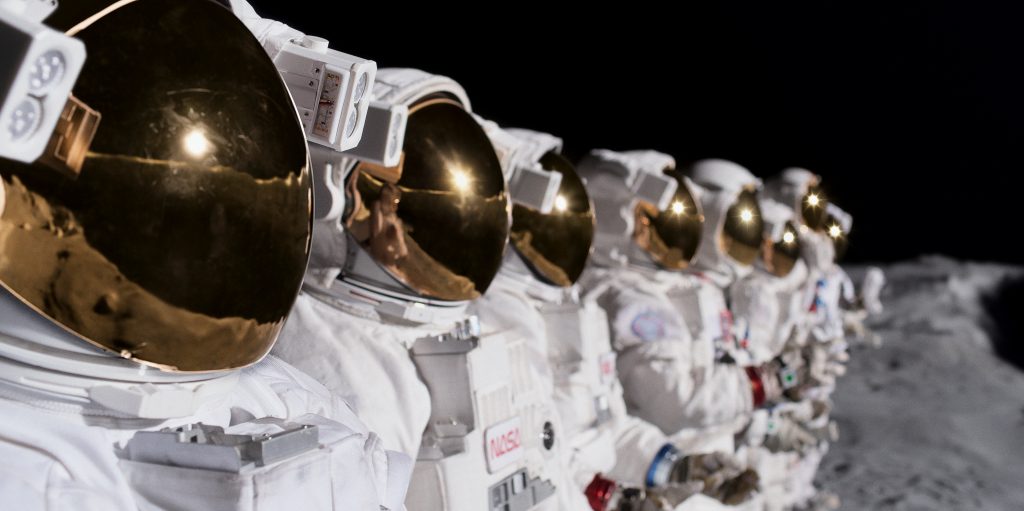There’s no denying that Apple has struggled to make an impact with its highly-anticipated streaming service just yet – so much so that the company has effectively “admitted defeat,” repeatedly extending the free trial period to encourage customers not to unsubscribe just yet.
Apple, perhaps, bit off more than it could chew with TV+, releasing the service at the same time as Disney+, which offers subscribers thousands of hours of content and access to some of the world’s most beloved brands and IPs such as Star Wars, The Simpsons, and Marvel.
Fast forward a year from its launch, and Apple TV+ has made some significant progress – not only is the user experience better than ever, but Apple has successfully launched a number of critically-acclaimed shows such as The Morning Show, Dickinson, and SEE, with movies like Palmer also rating well. It is true that Apple’s market share still remains relatively small, and that’s due to the lack of content as of yet. Unlike Netflix and Amazon, which invest billions into programming every year through original series and acquisitions, Apple took a slower and steadier approach. It’s a risky move, but with a few hard-hitters under its belt, the firm could be onto a winner.
One of those hard-hitters is For All Mankind, a science fiction television series based on an alternate history of the Space Race of the 1960s. The show was created by Ronald D. Moore, Matt Wolpert, and Ben Nedivi and boasts an exciting premise: what if the Soviets were the first to land on the moon?
The show, over its ten-episode first season, answers this question, painting a hopeful future as the Space Race gains momentum. For space lovers, For All Mankind follows a whole raft of series such as The Universe, The 100, Lost In Space, and Away, but offers a more immersive and believable storyline. The science-fiction show is a solid effort at an epic, alternate-history storytelling, and though some critics have said the storyline moves too slowly, it’s been praised for its impressive casting.
The sprawling show holds a 73% “Tomatometer” rating, with Alex Cranz saying that the show “lures you in with familiarity and gives you a thoughtful and nerve-wracking 10 episodes for your commitment,” whilst Ed Fortune of Starburst says that the show is “hope enough to be watchable, gritty enough to be engaging and fantastic enough to inspire daydreams.” Tim Stevens of The Spool gave a mixed reaction upon watching the first season of the show, saying “In the early episodes, one may repeatedly find their mind wandering.
However, over the course of the five episodes, the show’s slow assemblage of changes starts to find their advantage.”Brad Newsome of the Sydney Morning Herald said that: “For All Mankind deftly blends fictional and historical characters and does a good job of portraying outdated attitudes and environments, viewing them through a modern lens, imbuing things with abundant contemporary resonances,” whilst Erin Carson of CNET said that “It’s not that the show can’t or shouldn’t encompass all those elements. It just has a tendency to let certain plotlines wander, only to resurface them, giving you a moment of, “Oh yeah, that’s still happening”” proving that, despite praise from critics, the show is not without its faults.
The first season of the show premiered in November 2019, shortly after the release of Apple TV+, and a second was commissioned shortly afterwards. The COVID-19 pandemic put a spanner in the works for production, but the cast and crew battled through and ultimately lead to the release of the second season 14 months later in February 2021.
The second season of the show picks up a decade later in 1983, at the height of the Cold War when tensions between the United States and the USSR at their peak.
Ronald Reagan is president and the greater ambitions of science and space exploration are at threat of being squandered as the US and Soviets go head-to-head to control sites rich in resources on the moon. The Department of Defense has moved into Mission Control, and the militarization of NASA becomes central to several characters’ stories: some fight it, some use it as an opportunity to advance their own interests, and some find themselves at the height of a conflict that may lead to nuclear war.
Season two offers a different tone and puts the show on a new trajectory, unlocking new character arcs and changing the nature of the series. The second season of the show appears to be performing even better than the first, with fourteen critic reviews helping it achieve a 100% Tomatometer review on Rotten Tomatoes, with an audience score of 83% at the time this issue goes to print.
Ahead of season two’s release, Apple announced an early-season renewal of the show for a third, demonstrating its commitment to the storyline and promising more excitement to come.
Its success demonstrates that, when Apple casts correctly, it can make a significant difference and develop award-winning, cutting-edge content. We can’t wait to see what’s next from Apple TV+!
Are you a fan of For All Mankind? Let us know and check back soon for more.
